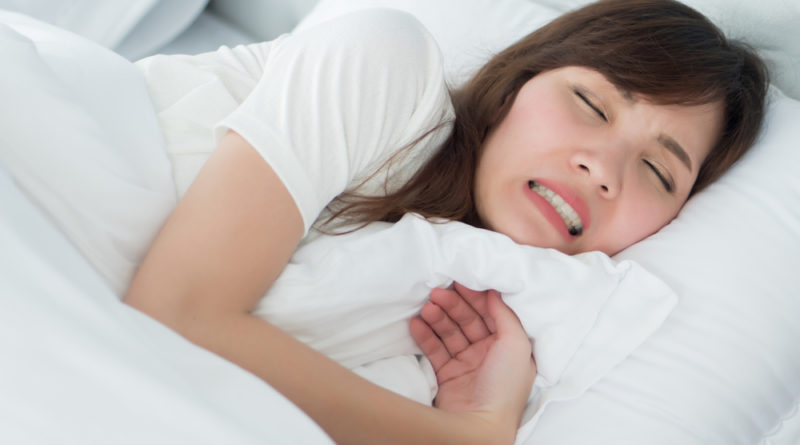3 Solutions for People Who Grind Their Teeth at Night
Involuntary grinding of teeth at night (bruxism) can cause headaches, pain on the jaw, and in extreme cases, broken teeth. People who grind their teeth at night may not be aware of their condition and only discover when a person sleeping next to them complains of the irritable gnashing sound. A trip to the doctor complaining of sore jaws and headache in the morning may also reveal you have bruxism. Grinding of teeth at night can also result in tooth sensitivity, facial pain caused by clenching the jaw muscles, chipped teeth, and wearing off the tooth enamel.
Symptoms of Grinding Teeth at Night
Individuals with bruxism may not grind the teeth every night, and the frequency each night varies, with some people clenching their teeth up to 100 times. According to the Bruxism Association, people who involuntarily grind their teeth at night are likely to suffer three times more from tension headaches in the morning. Another symptom is neck and jaw pain caused by the tightening of muscles. Some people with bruxism may complain of earache.
What Causes the Grinding of Teeth at Night?
The cause of teeth grinding varies from person to person. Grinding of teeth can be caused by increased stress and anxiety and certain drugs’ side effects, especially anti-depressants. Sleep disorders such as snoring and sleep apnea can cause a person to grind their teeth at night. Lastly, a person’s lifestyle, such as alcohol consumption, smoking, recreational drugs, and taking a lot of caffeine beverages, can cause a person to grind their teeth at night.
Solutions for People Who Grind Their Teeth
Get a Nighttime Mouthguard
Mouthguards are safety coverings worn over teeth used to protect teeth from bruxism. Wearing a nighttime mouth guard protects your teeth and prevents damage to the enamel, which increases the risk of getting cavities. Mouthguards can be bought in any store or pharmaceuticals without needing a doctor’s prescription. Similarly, you can have one custom made to fit you well and which will keep your mouth comfortable throughout the night. For added protection, you can get a custom-made nocturnal bite plate to prevent tooth damage.
Exercise and Workout Regularly
Grinding of teeth is associated with stress and anxiety. Adding a few exercise routines to your daily schedule will help you relax, releasing stress and tension. Also, ensure you get a relaxing bath just before going to bed. This will help you relax your jaw muscles. Additionally, apply a heating pad or a wet or warm towel to your jaws to relax jaw muscles. Also, drinking a non-caffeinated herbal beverage such as chamomile tea will help warm your mouth and relax your jaws.
You can also massage your jaw whenever you feel your jaws clenching, especially when confronted with a stressful situation. Similarly, become more conscious when you clench your teeth and break the habit. While this may be impossible at night, be mindful of getting the jaws relaxed during the day. You can keep track of situations that causes you to clench your teeth and work on avoiding them.
Be Mindful of What You Chew
The majority of people with bruxism have the habit of having something they are chewing most of the time. This can be a piece of chewing gum or even a pen cap! This repetitive habit should be stopped to prevent nighttime bruxism. Avoid chewy foods such as steak, sugarcane, and popcorn when you discover teeth grinding has flared up. This is because chewy foods will wear out your jaws, further worsening the condition.




